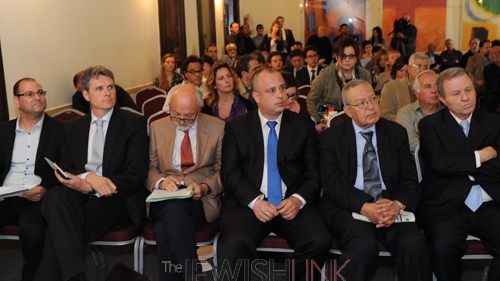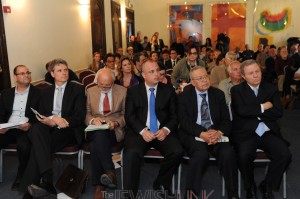
KUWAIT – Thirteen heads of Arab states and other leaders gathered together amid unprecedented diplomatic fallout among Gulf countries and tensions over Egypt and Syria in the annual two-day Arab League summit held in Kuwait , on Tuesday March 25.
The Arab League, which represents 350 million people and 21 states, some of whom own a significant part of the world’s natural oil reserves, is currently divided among several key issues plaguing the region.
“Improving the atmosphere among the Arab states is of utter importance,” declared Nabil al-Arabi, the Arab League’s secretary general according to a report in Germany’s Deutsche Welle (DW).
“The dangers around us are enormous and we will not move towards joint Arab action without our unity and without casting aside our difference,” said Kuwait’s Emir Sheikh Sabah al-Ahmed al-Saba.
Qatar is under heavy criticism, for its strong support of the Muslim Brotherhood in Egypt and other revolutionary states. Saudi Arabia, United Arab Emirates, Egypt and Bahrain withdrew their ambassadors to Qatar in March, protesting Qatar’s ‘interference’ in Arab states’ domestic affairs, Deutsche Welle reports.
Saudi Arabia and Egypt consider the Muslim Brotherhood a terrorist organization. Saudi Arabia recently passed law saying it would prosecute any Saudi citizen ‘financially or morally’ of supporting the Muslim Brotherhood and other terrorist organizations.
Syria is another contentious point for the Arab League. Its seat remained empty during the summit, as the country’s membership was suspended in November 2011 over the government’s continuing bloody civil war against dissenters. Although Ahmad al-Jarba, the leader of Syria’s opposition National Coalition, was invited to address the Arab summit, countries like Iraq, Lebanon and Algeria were against granting the seat to the opponents of Syria’s president Bashar al-Assad.
Lebanon is also an issue, as Syrian violence has been spilling over to the state. Some Lebanese Sunnis support parts of the Syrian opposition while Lebanese Shiite Hezbollah support Assad. In addition, Syrian opposition fighters come to Lebanon as an area of retreat, while Hezbollah militia fights alongside the Assad regime in Syria.
“This disunity makes the bloc weak,” said Josef Janning, a Mideast expert at the European Council on Foreign Relations. “Essentially, the Arab leaders shy away from responsibility,” referring to the lack of leadership in the Arab League today.
But in the meantime, a newly formed group of Israeli and Palestinian politicians believe that the Arab League can successfully advance a vision of peace and a comprehensive solution for the Arab-Israeli conflict, despite the inner-conflicts and the league’s longstanding refusal to recognize Israel.
The Prague Forum, a Middle Eastern Parliamentarian Forum established last month in Prague, Czech Republic, held an event at the Jerusalem YMCA on Monday, March 24, asking the Arab League summit to back the Arab Peace Initiative.
At the forum’s launch in Jerusalem yesterday, Israeli and Palestinian politicians and civil society leaders called on the Arab League to re-endorse the 2002 Arab Peace Initiative at Tuesday’s summit in Kuwait. The peace initiative claims that Israel would have peace with dozens of Arab and Muslim countries if it was to withdraw to 1967 borders.
Israeli Labor MK Hilik Bar stated that the Arab League must be part of the peace negotiations. “As an Israeli, I want to see the Arab League as a mediator in peace negotiations,” Bar stated in his speech addressing the Prague forum.
At the launch, the member of the Fatah Revolutionary Committee and the head of the PLC Political Department, Abdallah Abdallah, declared that Jerusalem would be the capital of a Palestinian state.
Earlier in March, the Arab League publically refused to recognize Israel as a Jewish State and officially backed Palestinian Authority President Mahmoud Abbas’s adamant rejection of Israel’s demand to be recognized as a state of the Jewish people during the Washington-led talks.
By Anav Silverman-Tazpit News Agency
